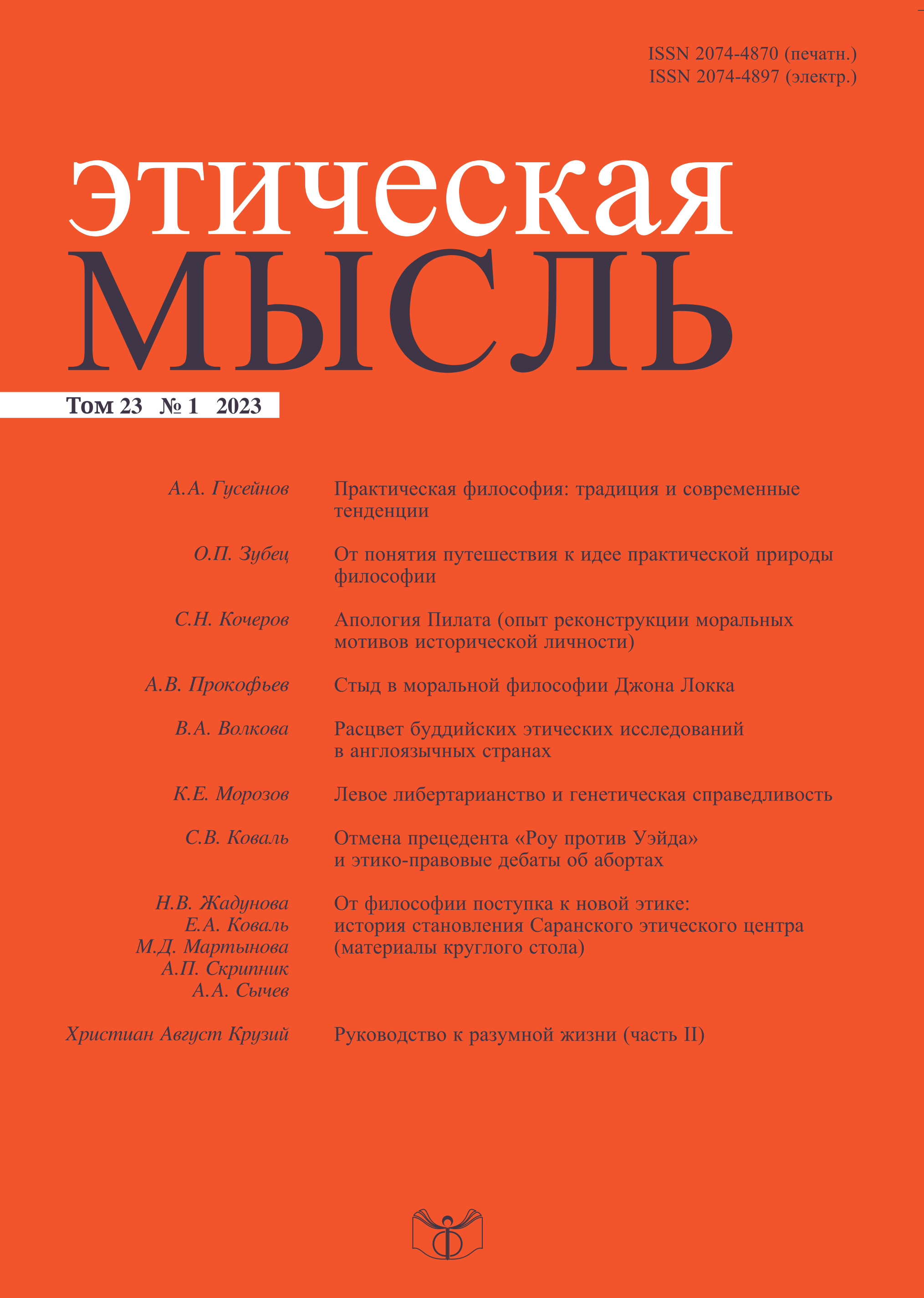Pilate’s Apology (The Experience of Reconstructing the Moral Motives of a Historical Person)
DOI:
https://doi.org/10.21146/2074-4870-2023-23-1-51-65Keywords:
Пилат, Иисус, мораль, религия, политика, страх, моральный долг, угрызения совестиAbstract
In modern Russian, “apology” usually implies glorification, praising someone, sometimes with ironic overtones. In this article, it is used in the sense that goes back to the ancient Greek ἀπολογία, which meant justification from external attacks. It may seem strange that the topic of the acquittal of a person who, as many people think, has passed the most unfair verdict in history is stated. As the man who condemned Jesus to death, Pilate, of course, bears full responsibility for his sentence. But until now, more attention has been paid to the analysis of the legal grounds for this decision than the moral motives that caused it. Pilate is usually accused of being aware of Jesus’ innocence and even trying to protect the defendant, he condemned him to crucifixion – under pressure from the crowd or out of fear that he would be denounced to the emperor Tiberius. Thus, many authors – from the Apostle John to Mikhail Bulgakov – considered the main reason for Pilate’s refusal to further attempts to save Jesus to be his moral weakness, or, more simply, cowardice. The article will attempt to prove that the Pilate made his decision not out of fear for his life and career, but due to higher moral motives.









